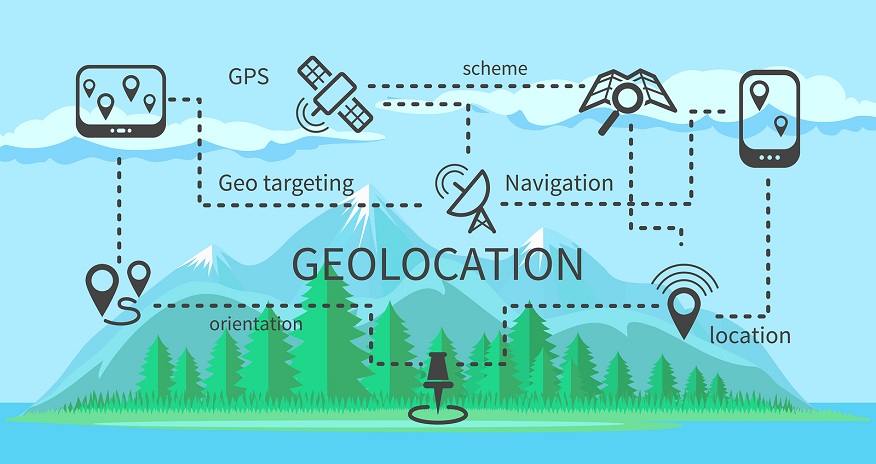Geolocation is a vital component of many applications, providing valuable information about the physical location of users or devices. IP geolocation and GPS are two common methods for determining location (Global Positioning System). Both have their strengths and limitations, making it essential to choose the right approach for your specific application. Explore the differences between IP geolocation API and GPS and help determine which is right for your needs.
Section 1: Understanding IP Geolocation
What Is IP Geolocation?
IP geolocation is the process of determining a device or user’s geographical location (such as city, region, country, or coordinates) based on their IP address. This technology is commonly used in various applications, including website personalization, targeted marketing, and fraud prevention.
Section 2: GPS (Global Positioning System)
What Is GPS?
GPS, or Global Positioning System, is a satellite-based navigation system that provides precise location information in real-time. It relies on a network of satellites orbiting Earth and GPS receivers to calculate a device’s exact coordinates (latitude and longitude).
Section 3: Criteria for Choosing Between IP Geolocation and GPS
Criterion 1: Accuracy
- IP Geolocation: IP geolocation accuracy can vary based on the database or API provider. Typically, it can provide city-level accuracy, which is often sufficient for applications such as targeted marketing, content localization, and identifying a user’s general location. However, the level of accuracy may vary by provider, and it may not always provide precise coordinates.
- GPS: GPS is renowned for its exceptional accuracy, providing location data with high precision. GPS can determine a device’s coordinates down to a few meters or even centimeters, making it ideal for applications where pinpoint accuracy is critical, such as navigation systems and surveying.
Criterion 2: Accessibility
- IP Geolocation: IP geolocation is highly accessible and versatile. It is compatible with a wide range of devices, including smartphones, tablets, computers, IoT devices, and more. It relies on the device’s internet connection to access an IP geolocation database provider or API, making it a practical choice for various applications.
- GPS: GPS requires dedicated hardware, typically in the form of GPS receivers. While GPS is readily available in smartphones and dedicated GPS devices, it may not be suitable for all devices or applications. Implementing GPS in non-GPS-enabled devices may require additional hardware, which can sometimes be a limitation.
Criterion 3: Real-Time Tracking
- IP Geolocation: IP geolocation is primarily suited for static or semi-static applications where real-time tracking is not a primary requirement. It provides location information based on the current IP address of a device, and while it can offer some movement tracking, it may not be as suitable for dynamic, real-time applications.
- GPS: GPS is designed for real-time tracking. It continuously updates a device’s location, making it ideal for applications that require constant monitoring and immediate location data, such as vehicle tracking, emergency services, and live navigation.
Criterion 4: Device Compatibility
- IP Geolocation: IP geolocation is compatible with a broad spectrum of devices thanks to its reliance on internet connectivity. It can be seamlessly integrated into web applications, mobile apps, and IoT devices, making it versatile and accessible across various platforms.
- GPS: GPS requires dedicated hardware, limiting its compatibility to devices equipped with GPS receivers. While many modern smartphones come with built-in GPS functionality, not all devices, especially IoT or older devices, may have GPS capabilities.
Criterion 5: Cost
- IP Geolocation: IP geolocation databases and APIs are often cost-effective, especially for limited usage or free for basic services. However, premium IP geolocation services with higher accuracy and additional features may come at a cost. The affordability of IP geolocation makes it an attractive choice for businesses with budget constraints.
- GPS: Implementing GPS in devices typically involves hardware costs, as GPS receivers must be integrated. Maintaining a GPS infrastructure, such as satellite systems and ground stations, can be expensive. While GPS offers unparalleled accuracy, it may not always be the most cost-effective solution, particularly for smaller-scale applications.
Section 4: Use Cases for IP Geolocation
Use Case 1: Targeted Marketing
IP geolocation is commonly used in marketing applications to deliver location-based content, advertisements, and promotions to users based on their approximate location.
Use Case 2: Content Localization
Websites and applications often use IP geolocation to customize content and language settings for users from different regions or countries.
Section 5: Use Cases for GPS
Use Case 1: Navigation
GPS is essential for navigation applications, such as mapping services, car navigation systems, and mobile GPS apps, providing turn-by-turn directions and real-time route guidance.
Use Case 2: Asset Tracking
Industries like logistics and transportation rely on GPS to track the location of vehicles, shipments, and assets in real-time, optimize operations, and enhance security.
Conclusion
The choice between IP geolocation and GPS depends on the specific requirements of your application. While IP geolocation offers accessibility and cost-effectiveness, GPS excels in accuracy and real-time tracking. Consider your application’s needs, budget, and device compatibility when deciding.
If you’re looking for a reliable IP geolocation service, consider DB-IP. DB-IP provides accurate and up-to-date IP geolocation data, making it a valuable resource for businesses and developers seeking precise location information. Visit DB-IP to explore their IP geolocation solutions.
Choose the geolocation method that aligns with your application’s goals and capabilities, and leverage the power of location-based data to enhance user experiences and drive business success.














+ There are no comments
Add yours